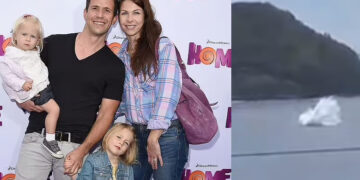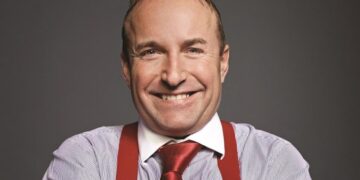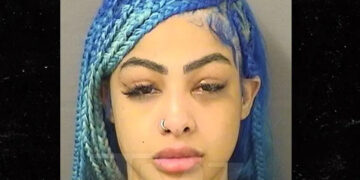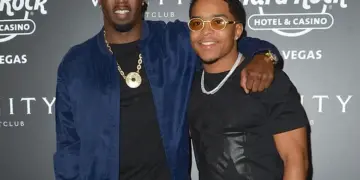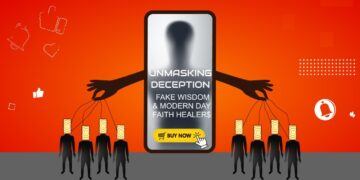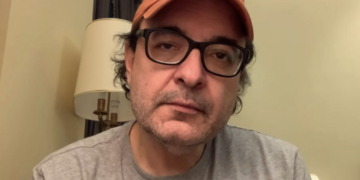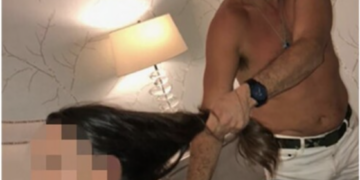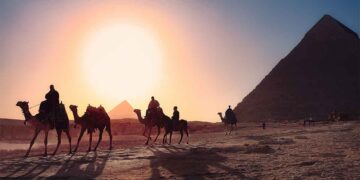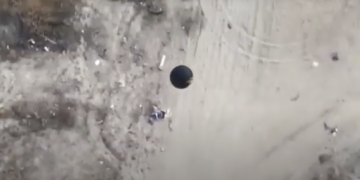were always helpful, and there was a guy who went to the audience cards. And we would get these cards back, and people would write things like, “Who would waste two hours watching that moron?” So, for a full year, I had to sort of make it so that everybody would understand why he kept coming back to her or why she kept coming back to him. So, I used that moment to play with that. Reiner nodded. “Albert knew that the style was totally realistic and believable, and our friendship carried over into the film, obviously, because there was so much to draw on.” Brooks continued, The previews were so bad that I said, “Rob, we have to put something at the top of this movie that tells everybody that it’s just a movie. Otherwise, they think it’s a documentary on whatever we were doing.” Reiner has his own theory about working with comedians. I don’t know if people understand how hard it is to be funny. They think all you do is just, “Hey, say something funny.” But that’s not the way it works. I think to be a real comedian, you’ve got to go through the fire and flop a lot. We’ve all done stuff where I’ve gone, “Geez, that’s not a good one.” But you learn, and you know. When asked about one of Brooks’ first screen appearances, on 1969’s Good Morning, World — a show set in a radio station that doesn’t often end up on retrospective lists — he recalled something amazing: “They only sent 20 shows out to the affiliates, as opposed to the normal 26. So, it was almost impossible to see it.” He remembered that the thing, which Reiner confirmed, was a very real thing. When he said, “Albert appeared, and was not seen for 45 years,” Brooks nodded. ** The conversation turned to their now-frequent trips to the theater to watch movies. Brooks talked about how, when Rupert Everett was not available to play his part in 1997’s Out of Sight, Steven Soderbergh cut the part — which led to them going to see a screening of that same film at the James Bond movies. ** Reiner noted that this project had been in the works for several years and had been close to happening with other documentarians. “They wanted me to direct, but I felt like the pattern was to tell some of the really interesting and off-color things that had happened to us over 60 years. I would rather do a milder, lighter film with Albert’s participation in it.” Brooks started in, “I’m not saying anything about what you’ve accomplished. I will be a part of it, but it has to be done right. And I’m not the type of guy who’s going to make excuses for bad behavior or try to take away from our friendship. I’m an honest, straight shooter, and I believe in quality.” As for what he hopes viewers will take away from the film, Brooks said, I hope that they get a sense that we are a sweet, incredible friendship and a sweet, incredible career. ** As for the friendship? “I am proud of what we have accomplished, of thinking about how we used to read scripts together in the ’60s and ’70s in our home,” Reiner says. “The sheer audacity of the things we did was just amazing to me. Surprisingly, we were usually always encouraged. It took a brave guy to take a chance on us.” He added, “There were people who treated me like a dog, but when I got older and got into the business, I found a new perspective and se一个更大的敬意。”REINER: A few years ago, I made a documentary of my Dad called If You’re Not In The Obit, Eat Breakfast, and I wanted Albert to be in it because of his friendship with my dad and because he’s one of the funniest guys ever. Unfortunately, he couldn’t do it because he was busy working on his book. So, I said, “Okay, let’s—something.” “Let’s make our own project,” we decided. “Let’s make something fun,” he said. “What would my role be?” Ron asked. “I’m not sure yet.” 欢笑声和欢乐的回忆 中专浣熊这部纪录片充满了乐趣和回忆。 Reiner certainly has an inspirational story about his father, who passed away in 2012. “Carl was a man of integrity and someone who always followed his heart. He didn’t just follow the money. He put his art ahead of his finances. It’s about the journey and the people you meet along the way; we should all put as much as we can into our characters.” Overall, there are many invigorating and inspirational takeaways from Defending My Life. It’s a film that tells an incredibly fascinating life story. Wilder’s granddaughter, Ryeley Wagstaffe Wilder, has an even bigger picture of what her grandfather’s filmography and legacy might mean to future generations, saying, ““As I grew older and started to understand what my grandfather did, I realized that he did it all with a sort of mortality and courage that I think is incredibly rare to find in someone.” DAWN’s 7fdc8485a8a7b4f1cff9625f3b04de8d734fadfbd7d2507cbdffc4674efc74c69cbf63c77fa Rob Reiner and Albert Brooks are still the best of friends even after many years. Their fathers were both successful comedians so they were introduced to the comedic industry at a young age. They were also in the same class as Richard Dreyfuss. On HBO’s “Defending My Life”, fans can learn more about the relationship between Rob Reiner and Albert Brooks, as well as Albert’s successful career as a stand-up comedian and actor. As the documentary covers Brooks’ unconventional style and unique concepts, it provides an in-depth look at his long and diverse career. It includes his work as a stand-up comedian, roles in film, and more. Throughout the documentary, Reiner shares his admiration for Brooks and discusses his own friendship with him. The documentary sheds light on their life-long friendship and the influences on Brooks’ career. Brooks and Reiner discuss the indescribable nature of comedy and the challenges they faced. They talk about their fathers and how they approached comedy. Despite their love for comedy, they never discussed theories about what makes something funny. They believe that comedy is instinctive and cannot be taught. They also talk about how they learned from watching others and by experiencing their own failures. Brooks opens up about the guidance he received from Reiner’s father when starting out in the film industry. Reiner shares how his father influenced his career as well. They both agree that the process of writing and directing comedy is both challenging and rewarding. Brooks discusses the challenge he faced with his directorial debut, “Real Life,” and how Reiner’s father encouraged him to do the film himself. They also address how comedy cannot be forced and that it’s essential for comedians to find their own style. They discuss how Brooks’ stand-up comedy style deconstructed traditional comedy elements and how he had to fight against the expectations of comedic norms at the time. The documentary also provides insight into Brooks’ early career and his partnerships with comedy legends. It examines his unique approach to comedy and his impact on the industry. Throughout the conversation, Brooks and Reiner showed great admiration for each other and shared a deep mutual respect. They reflected on their friendship and the incredible moments they shared. Brooks shared an amusing story about Steven Spielberg’s little-known involvement in his early career. They reminisced about their experiences in the entertainment industry, the challenges they faced, and the lessons they learned. Overall, “Defending My Life” offers an emotional and insightful look into the friendship between Rob Reiner and Albert Brooks and provides invaluable inspiration for aspiring comedians and filmmakers.
- BREAKING NEWS
- News
- Entertainment
Trending Tags
- Crime
Trending Tags
- Lifestyle
- Tech
Trending Tags
- Unmasking Deception
Trending Tags
- UFO
- Viral Videos
Trending Tags
- BREAKING NEWS
- News
- Entertainment
Trending Tags
- Crime
Trending Tags
- Lifestyle
- Tech
Trending Tags
- Unmasking Deception
Trending Tags
- UFO
- Viral Videos
Trending Tags
Albert Brooks on the Call From Stanley Kubrick That Changed His Life – The Hollywood Reporter
0
SHARES
1
VIEWS
- Trending
- Comments
- Latest
CRAZIEST MOTORCYCLE POLICE CHASE
July 21, 2024
Julian Assange Released from UK Prison – WikiLeaks
June 25, 2024
Recent News
Browse by Category
- Altcoins
- Automotive
- Business
- Canada News
- Clown World
- Crypto News
- Crypto Tube
- Entertainment
- Entertainment News
- Fashion
- Feel good stories
- Food
- Food & Drinks
- Gadget
- Gaming
- Health
- Lifestyle
- Litecoin
- Luxury Lifestyle
- Metaverse
- Mobile
- Monero
- Movie
- Music
- News
- NFT'S
- Politics
- Press Releases
- Regulation
- Review
- Sports
- Tech
- Technology
- Travel
- UFO
- Uncategorized
- Unmasking Deception
- USA Crime
- Viral Videos
- War & Politics
- World
- World News
- XRP
Recent News
CRAZIEST MOTORCYCLE POLICE CHASE
July 21, 2024
Julian Assange Released from UK Prison – WikiLeaks
June 25, 2024
© 2024 All Rights Reserved. Urecomm News - GarciaCo









